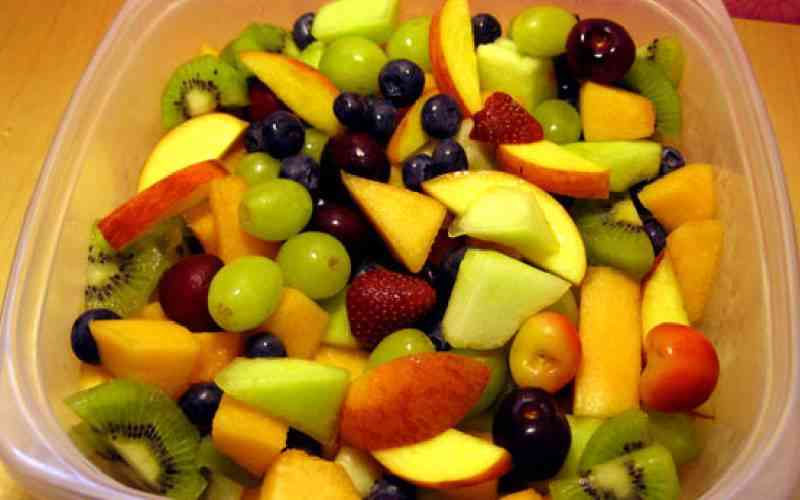By Dr Kizito Lubano
Bottled water is healthy, or so marketers would have us believe. But here is what they do not tell you: It’s expensive, wasteful and contrary to popular belief, not any healthier for you than tap water. Yes, that’s bottled water for you.
In reality, bottled water is just water. That fact is not stopping people from buying a lot of it. Estimates variously place worldwide bottled water sales at between $50 and $100 billion each year, with the market expanding at the startling annual rate of seven per cent.
Bottled water is big business. But in terms of sustainability, bottled water is a dry well. It’s costly, wasteful and distracts the brass ring of public health: the construction and maintenance of safe municipal water systems.
Want some solid reasons to kick the bottled water habit? We have rounded up seven to get you started.
Value for money
Until recently, one litre of bottled water was more expensive than one litre of super petrol in Kenya.
Elsewhere, take for instance two of the world’s leading bottled water brands, they sell the resource in 20-ounce sizes and it can be purchased from vending machines alongside soft drinks — and at the same price. Assuming that you can find a one dollar machine, that works out to five cents an ounce. These two brands are essentially filtered tap water, bottled close to their distribution point. Interestingly, most municipal water costs less than one cent per gallon.
Now consider another widely sold liquid: gasoline. It has to be pumped out of the ground in the form of crude oil, shipped to a refinery (often halfway across the world), and shipped again to your local filling station.
In the US, the average price per gallon is hovering around Sh250. There are 128 ounces in a gallon, which puts the current price of gasoline at a fraction over two cents an ounce.
And that’s why there’s no shortage of companies that want to get into the business. In terms of price versus production cost, bottled water puts big oil to shame.
No healthier than tap water
While public safety groups correctly point out that many municipal water systems are ageing and there remain hundreds of biological and chemical contaminants for which no standards have been established, there’s little empirical evidence that suggests bottled water is any cleaner or better for you than its tap equivalent.
Implication on health
When plastic is in contact with water, it leaches phthalate that can cause cancers or infertility. It is a potential cause for electrolyte imbalance and sudden cardiac arrest can occur due to the unnatural composition.
People say they drink bottled water because it tastes better than tap. But, in blind taste tests, people can’t tell the difference.
Pollution
Bottled water produces up to 1.5 million tons of plastic waste per year. According to an international Non Governmental Organisation, Food and Water Watch, that plastic requires up to 47 million gallons of oil per year to produce. And while the plastic used to bottle beverages is of high quality and in demand by recyclers, over 80 per cent of plastic bottles are simply thrown away.
Bottled water means less attention to public systems.
Many people drink bottled water because they don’t like the taste of their local tap water, or because they question its safety.
Only the very affluent can afford to switch their water consumption to bottled sources. Once distanced from public systems, these consumers have little incentive to support the upgrading municipal water treatment.
Carbon footprint
Bottled water adds food miles to a basic necessity through transportation from one water basin to another (sometimes thousands of miles away). Previously we had done this with pipes and pumps; bottled water relies on lorries and plastic. Unnecessary movement means energy is burnt, carbon is released and we make one of our most basic needs yet more carbon intensive.
In the documentary film Thirst, authors Alan Snitow and Deborah Kaufman demonstrated the rapid worldwide privatisation of municipal water supplies, and the effect these purchases are having on local economies.
Water is being called the "Blue Gold" of the 21st century. Thanks to increasing urbanisation and population, shifting climates and industrial pollution, fresh water is becoming humanity’s most precious resource.
Large corporations are stepping in to purchase groundwater and distribution rights where they are able to. Some contracts give preferential treatment to the water bottlers over the town’s taxpayers because the company can draw the maximum amount of water it wants, regardless of drought or water shortage.
Multi-national corporations are stepping in to purchase groundwater and distribution rights wherever they can, and the bottled water industry is an important component in their drive to commoditise what many feel is a basic human right: the access to safe and affordable water.
What can you do?
There’s a simple alternative to bottled water: Buy a stainless steel thermos, and use it.
Don’t like the way tap water tastes? Inexpensive carbon filters will turn most tap water sparkling fresh at a fraction of bottled water’s cost.
Danger posed by bottling
Contaminants
Testing of ten brands of bottled water revealed a wide range of pollutants, including not only disinfection by-products, but also common urban waste water pollutants like caffeine and pharmaceuticals (tylenol), heavy metals and minerals including arsenic and radioactive isotopes, fertiliser residue (nitrate and ammonia) and a broad range of other, tentatively identified industrial chemicals used as solvents, plasticisers, viscosity decreasing agents, and propellants.
Morally disgusting
The average consumer of bottled water gives out an extra Sh42,00 per year. We spend that extra so that our water can be wrapped in plastic. Yet, more than 800 million people have no access to clean water. To reach the sanitation and safe water Millennium goal would take some US $ 11.3 billion per year. Americans drinking bottled water fork out at $150 billion; how can we morally justify that!
Plastic rubbish
Finished with drinking our ‘spring water’ the majority of us will the throw that plastic bottle into the dump. We are turning one of our most precious resources into rubbish that will then sit in a landfill site for about 450 years or get washed into the sea.
Worldwatch Institute highlights the problem:
Each year, about two million tons of PET (Polyethylene terephthalate) bottles end up in landfills in the United States. In 2005, the national recycling rate for PET was only 23.1 per cent, far below the 39.7 per cent rate achieved a decade earlier.
This rubbish is not necessary and it just means more waste, less oil and more costs for both the environment and humanity.
The writer is the head of planning and monitoring at the Kenya Medical Research Institute (Kemri).
 The Standard Group Plc is a multi-media organization with investments in media platforms spanning newspaper print
operations, television, radio broadcasting, digital and online services. The Standard Group is recognized as a
leading multi-media house in Kenya with a key influence in matters of national and international interest.
The Standard Group Plc is a multi-media organization with investments in media platforms spanning newspaper print
operations, television, radio broadcasting, digital and online services. The Standard Group is recognized as a
leading multi-media house in Kenya with a key influence in matters of national and international interest.











